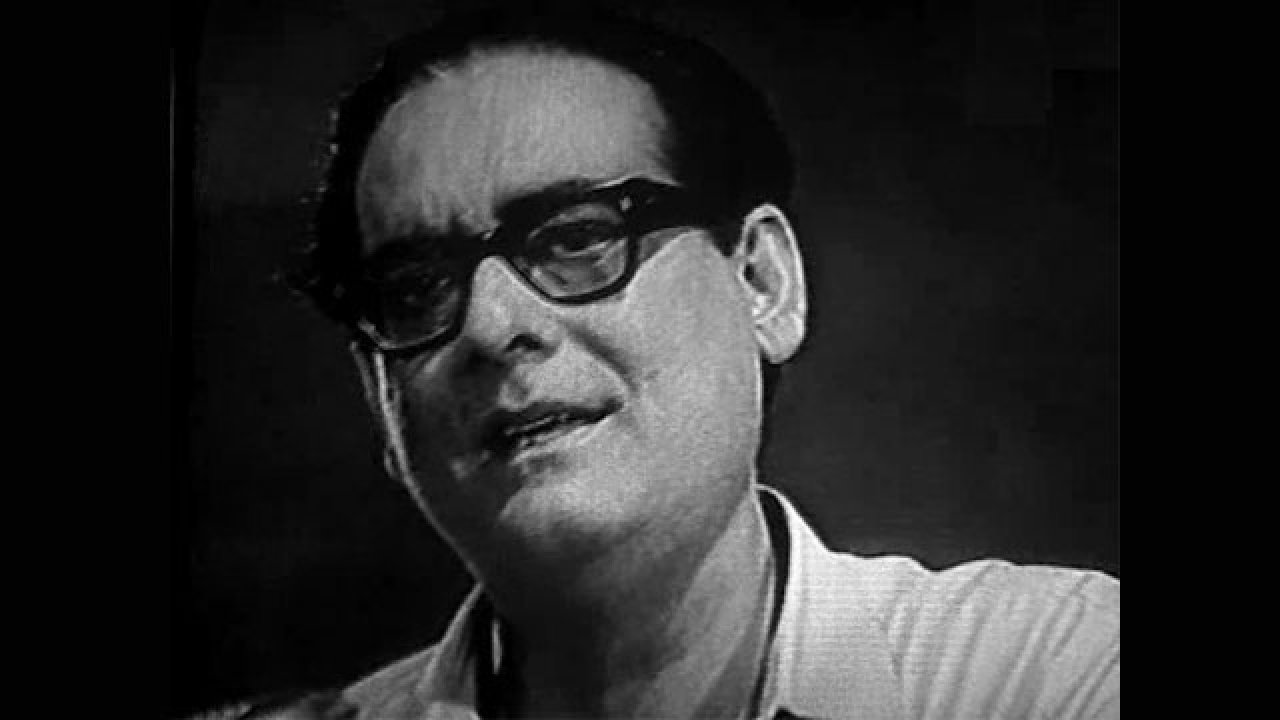In the history of Bengali and Hindi non-classical music, and later in Tollywood and Bollywood- Hemant Kumar- with his ringing melodious voice, left a distinguished impact and is still causing ripples in this centenary year.

His well-known secular and left credentials, and of course, his association with the Indian Peoples’ Theatre Association (IPTA), all this added to the Hemant Mukhopadhyaya or Hemant Kumar mystique. Recall, here was the person, who along with contemporary music director, Salil Chowdhury, could bring touches of feudalism with all its brutalities in the poems of famous poet Sukanta Choudhury – by converting them to songs – to the popular music domain.
A flashback to the song ‘Runner Runner’, which one actually heard live. Indeed, it expresses the pathos in the life of the running post man, carrying post and money orders to villages, from dawn to dusk. It was in New Delhi, sometime in the late 60s. Seated besides us was none other than freedom fighter Aruna Asaf Ali, with a few world peace activists in an encore mood. Next came: ‘Palki Chale (Palanquin on the Move)’ which brought the pain of palanquin bearers of yesteryears. To cap the first lap before the interlude, came the reminder of transformation of villages in phases during famine days with songs of Tagore, which provided a break amidst a popular Tollywood romantic number for youngsters. This was coupled with a private number, ‘Bhala tha Kitna ye apna Bachpan (The golden years of our childhood)’ .
Following the interval, came a popular number of the 50s Bollywood from the film Jaal. He performed his ghazal, followed by a famous one from the film Pyaasa and part of a Kabuliwala song. A brief pause, followed by an ode to the Ganga. Towards the end, it was more and more Rabindra Sangeet, coupled with a poignant reminder of Dean Martin’s ‘Summer Wine’ and another reminder of the ‘Man who plays the mandolino’ in Hindi – ‘Leharo pe Lehar’.
Hemanta Mukhopadhyaya, indeed brings different memories to different people. He was the favourite singer of millions of Bengalis and later won the hearts of entire India with his melodious music and soulful songs. He was not only a great singer but a great music director too. His career started as a young man of 15 when he was studying in class IX in a school in Calcutta. He was a shy boy who liked to keep a low profile but his friends knew of his latent talent. One of his very close friends, Subhash Mukhopadhyaya, who later became one of the greatest poets of modern Bengal, took him to All India Radio for audition, where he was immediately selected.
One may recall that he was a great admirer of Pankaj Mallik, the inimitable singer of Rabindra Sangeet and he was attracted to the world of Rabindra Sangeet because of Pankaj. In one of his interviews to All India Radio, he jocularly narrates how in his first public rendering at the University of Calcutta, he did not get the chance to sing as the great musical sensation Pankaj Mallik arrived on time! He was promised a spot, but once the great artist reached, the organisers brushed him aside. He added that he was not disappointed at all as he got a chance to listen to his idol in person.
Later, Hemant Kumar became a household name in Bengal – gathering popularity both for Rabindra Sangeet and popular Bengali music (adhunik gaan- modern songs) in films and Puja numbers (songs released during Durga Puja). He was the voice of the matinee idol of Bengali screen, Uttam Kumar and these two together brought the golden period in Bengali cinema. Hemant played a special role in the IPTA movement and remained a great sympathiser of the communist movement along with his contemporaries Debabrata Biswas, Suchitra Mitra and others. His association with Salil Choudhury is iconic, the two together gave new life to the revolutionary poems of the young talent Sukanto Chaudhuri. Hemanta’s non filmy music were as popular as film music and he has more than 200 non-film songs to his credit.
Some may remember an incident in one of his functions in a Kolkata Puja pandal. Long long back, when bottled water was unheard of, he asked for a glass of water in between two songs. The organisers were rather unorganised and took a long time to arrange for a glass of water. He burst out singing, ‘Chokhhe amar trishna, o go, trishna amar bokhho jure (my heart is so thirsty )’. He could be a really witty person.
But his talent was not limited to Bengal only. When he shifted to Bombay and joined films both as a singer and music director, the whole country became a fan of his music and melodious voice. Along with Lata Mangeshkar, he almost became the main voice of films for a short span. His voice matched magnificently with Dev Anand and together they charmed the viewers for quite some time. His songs in Anupama and ‘Khamoshi were also mesmerising. Who can forget Dharminder singing in Hemant’s voice ‘Ya dil ki suno duniya walo (should I listen to the heart or the people)’. Of course, one of his contemporaries was Talat Mahmood, with a silky voice who also made a debut in Bengal as Tapan Kumar. But in the Hindi film industry he, however, was famous for his ghazals.
The writer is a senior journalist.
First published in Newsclick.